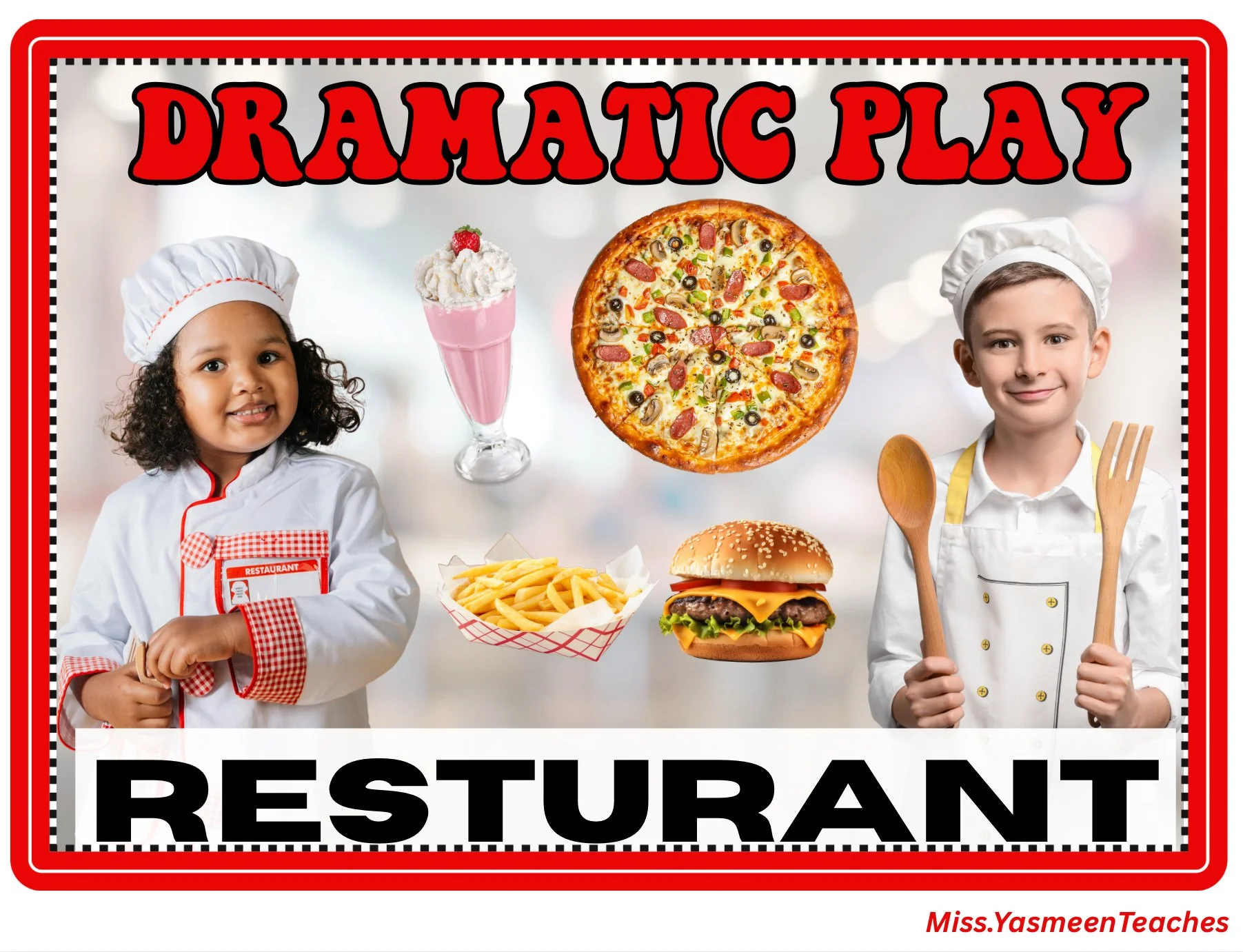The Importance of Modeling and Dramatic Play for children.
The Importance of Modeling Play and Dramatic Play for Children
Play is often called the “work” of childhood — and for good reason. Through play, children explore the world, build social skills, develop emotional understanding, and sharpen their thinking. But not all play is created equal. Dramatic play — the kind where kids pretend to be chefs, superheroes, parents, or pirates — is especially powerful. And when adults model this kind of play, it takes the experience to a whole new level.
Let’s explore why modeling play and dramatic play is so crucial for children’s development, and how adults can support it meaningfully.
What Is Dramatic Play?
Dramatic play (also known as pretend play or imaginative play) is when children take on roles and act out stories or scenarios. It might look like playing house, running a pretend grocery store, or rescuing stuffed animals from a volcano made of pillows. It can be child-directed or adult-supported — and both are valuable.
Why Modeling Matters
Adults play a powerful role in shaping children’s experiences. When we model play — by joining in, showing interest, or demonstrating how to pretend — we help children:
1. Learn How to Play
Not all children naturally know how to jump into imaginative play. Some may feel unsure or need guidance. When adults model how to use props, pretend with voices, or build a story, children see what’s possible. You’re not “taking over” their play — you’re giving them tools and confidence to create their own.
2. Build Language and Communication Skills
When you model play, you’re naturally introducing new vocabulary, asking questions, and narrating actions. For example, in a pretend doctor’s office, you might say, “I’m writing your prescription. Take this medicine twice a day.” Suddenly, your child is learning words like prescription, thermometer, and appointment. These are real-world terms delivered in a fun, meaningful way.
3. Strengthen Emotional Understanding
Pretend play often involves big emotions: fear, excitement, nurturing, or frustration. When you model how characters might feel or respond, you help children identify and process those emotions. For example, pretending to comfort a sad baby doll teaches empathy and caregiving skills.
4. Encourage Problem Solving and Critical Thinking
What happens when there are three customers but only one pizza? When the spaceship breaks down mid-mission? Dramatic play is full of small challenges that require creative thinking. Adults can model how to navigate these problems, offering just enough support for children to think independently.
5. Support Social Development
Children learn how to take turns, share ideas, compromise, and negotiate during dramatic play. When adults model respectful interaction, they provide a script for children to follow. This can be especially helpful for children who are still learning social cues or have difficulty with group play.
Tips for Modeling Dramatic Play
You don’t need to be a theater major to engage in pretend play. Here are some simple ways to model effectively:
Follow your child’s lead. Join their play gently. Let them choose the roles or setting.
Narrate what you’re doing. “I’m mixing the soup. It needs more carrots!”
Ask open-ended questions. “What should we do if the dragon comes back?”
Introduce props or story ideas. A simple box can become a boat, a spaceship, or a treasure chest.
Use voices, expressions, and gestures. Don’t be afraid to get a little silly — children love it.
Modeling play isn’t about controlling or structuring every moment of a child’s imagination. It’s about showing up, being present, and giving children the tools to explore their world with creativity and confidence. Whether you’re a parent, teacher, or caregiver, your willingness to engage in dramatic play tells a child: “Your ideas matter. Your world is worth exploring. And I’m here with you.”
So next time your child hands you a toy phone or invites you to a tea party with stuffed animals — say yes. You’re not just playing. You’re building brains, hearts, and relationships that last.
Check this out!
This is a Dramatic Play RESTURANT using REAL Pictures to facilitate learning. Fully printable and easy to prep!
